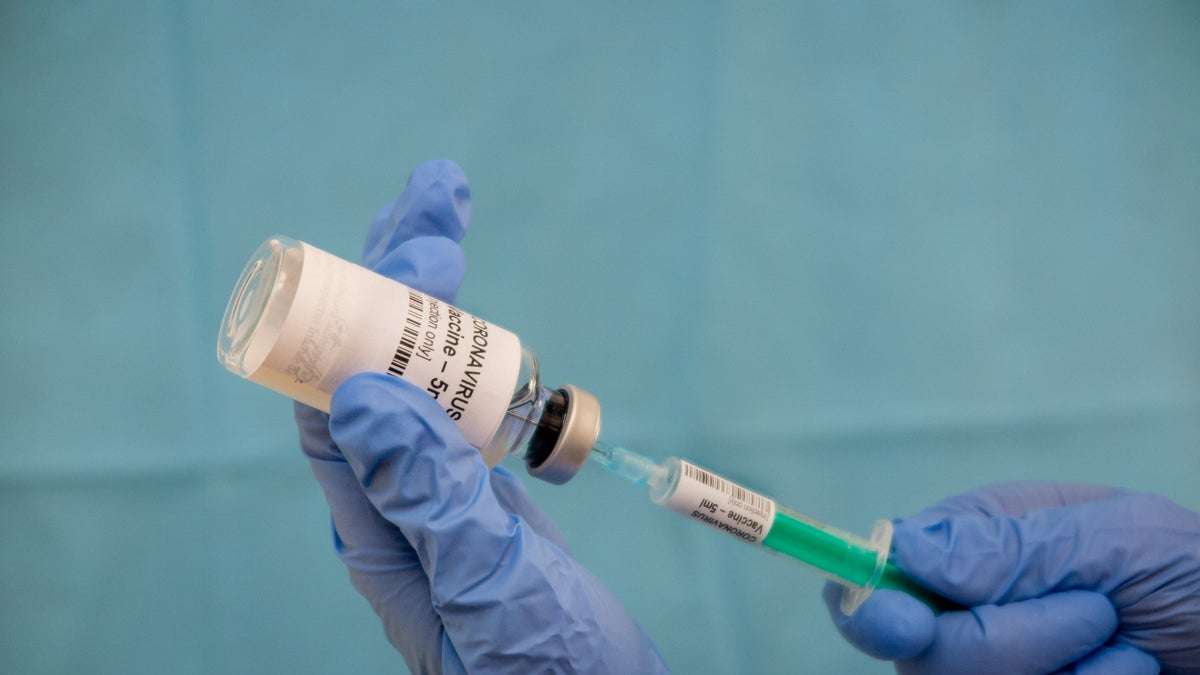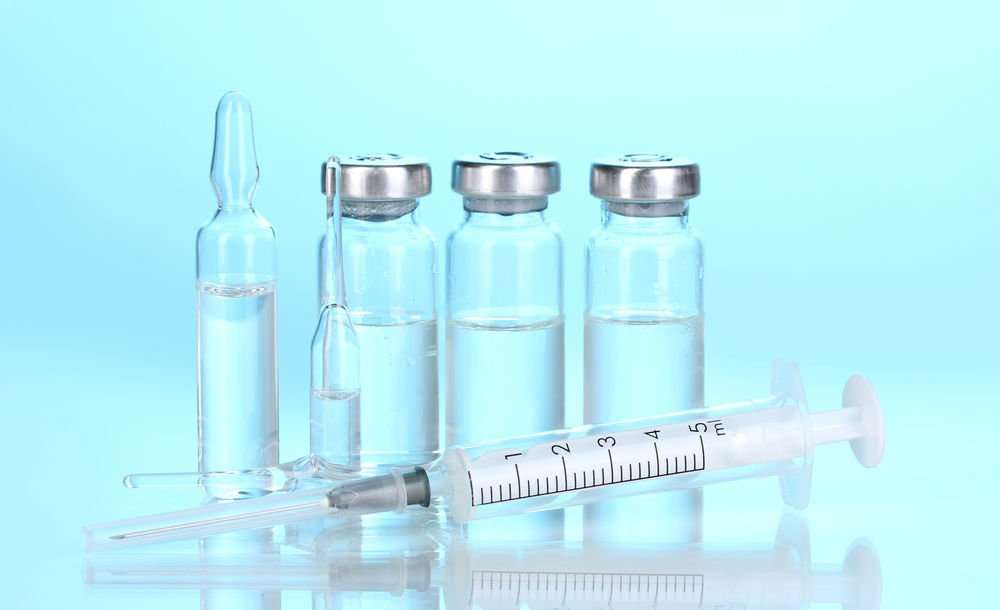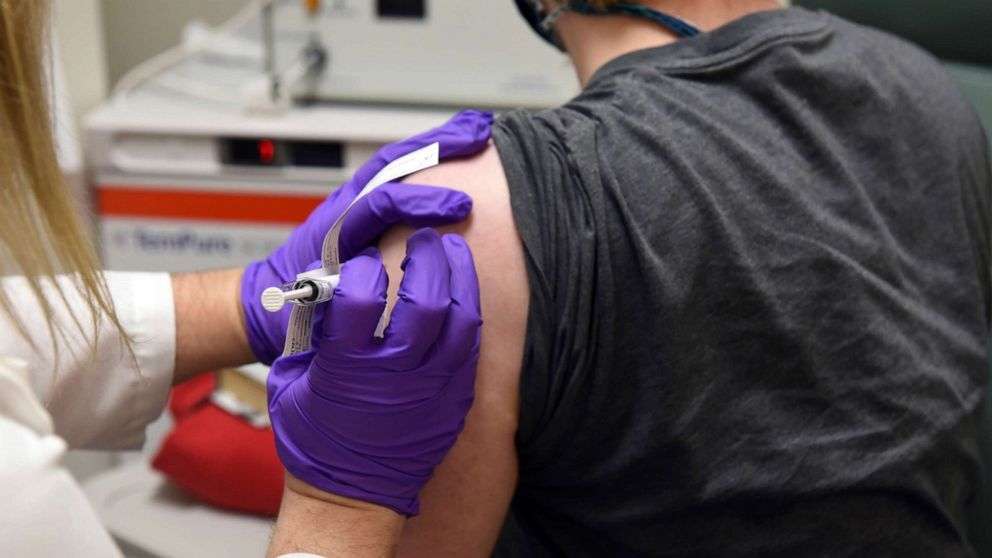Persons With Inadequate Immunization Records
Children and adults lacking adequate documentation of immunization should be considered unimmunized and started on an immunization schedule appropriate for their age and risk factors. Conjugate meningococcal vaccine, as appropriate for age, may be given regardless of possible previous receipt of the vaccine, as adverse events associated with repeated immunization have not been demonstrated. Refer to Immunization of persons with inadequate immunization records in Part 3 for additional general information.
Faq: What Is A Vaccine ‘passport’ And What Are These Credentials Used For
Other campuses are restricted by current eligibility rules. Out-of-state students in Vermont, who represent a majority of enrollment at the University of Vermont, are not able to be vaccinated until April 30. New Hampshire will expand eligibility to out-of-state residents, including college students, starting April 19.
In addition to becoming a distribution site for the vaccine, Rutgers University will also begin a mass communication campaign to educate the student body and the surrounding community about the importance of getting a COVID-19 vaccine.
“We’re having students do videos,” says Calcado. Administrators are working with the university’s student government to design messages that resonate. “We need to take out the noise and concentrate on what the science says. The message is: What are the facts? What do we know?”
Calcado says it’s not just current or prospective students he has in mind for this. “When our students go back to their communities, to their families,” he says, “you know they’re armed with good information.”
Rutgers To Require Vaccine Proof For ‘all Students Planning To Attend This Fall’
“Vaccinations are an important tool for making the fall semester safe,” says Antonio Calcado, who leads Rutgers’ COVID-19 task force. “We felt that just simply encouraging would not have the same effect as a requirement.”
Colleges have struggled to control outbreaks on campus. Residential campuses are social spaces where viruses can spread through dorms, off-campus housing and parties. And campuses aren’t insulated from their communities there is research to suggest that spread of the coronavirus among students led to nearby deaths in nursing homes.
“This is not new”
Colleges have long required vaccinations for infectious diseases. In a survey of about 100 four-year institutions representing all 50 states and Washington, D.C., nearly all required at least one vaccine for enrollment. The MMR vaccine, which protects against measles, mumps and rubella, was required at 87.5% of campuses surveyed.
“This is not new,” explains Calcado. “We have a whole portal for uploading your vaccine history and all those types of things. So that’s already in place. And actually, this one just adds another vaccine to what’s in place today.”
Read Also: Is Ashworth College Recognized By Employers
People With Certain Medical Conditions Need A Primary Series Of Menb Vaccine And Routine Booster Doses
Vaccinate people who have the following medical conditions with a primary series of MenB vaccine:
- Complement component deficiency
- Functional or anatomic asplenia
The primary series for Bexsero® requires 2 doses. Administer the second dose at least one month after the first dose. The primary series for Trumenba® for people at increased risk requires 3 doses. Administer the second dose 1 to 2 months after the first dose. Administer the third dose 6 months after the first dose.
Administer a booster dose of MenB vaccine 1 year after series completion and then every 2 to 3 years thereafter, to people with these medical conditions.
Less Than Half Of Young Adults Plan To Get Vaccinated

A growing share of Americans intend to get vaccinated against COVID-19, but many still have questions about the COVID-19 vaccine, or vaccines in general. While most college students accept other now-common vaccinations, Pew Research Center polls show that Americans aged 18-29 are the least likely to say they’d get the vaccine.
Campus studies found similar numbers. In a survey of almost 600 graduate and undergraduate students at a Connecticut public university, 30% said they would not get the vaccine and another 20% said they weren’t sure.
Polls show that about one-third of college-aged Americans do not want to get the new COVID-19 vaccine.
To help counteract students’ hesitancy, marketing professor C. Kevin Synnott advises colleges to start information campaigns, which could include leaving easy-to-read info cards on dining hall tables, offering prizes for vaccine trivia games, and handing out swag.
Young people and people of color are both more likely to distrust the vaccine than other demographic groups. In November, less than half of Black respondents said they would definitely or probably get vaccinated, compared to 61% of white respondents. Meanwhile, the Biden administration has called vaccinating people of color a top priority.
You May Like: What College Accepts The Lowest Gpa
How To Get Your Covid
The COVID-19 vaccines currently available are given in 2 doses. You usually have the 2nd dose 8 to 12 weeks after the 1st dose.
If you’re aged 18 or over you can:
- find a walk-in COVID-19 vaccination site to get vaccinated without needing an appointment
- wait to be contacted by your GP surgery and book your appointments with them
If you cannot book appointments online, you can call 119 free of charge. You can speak to a translator if you need to.
If you have difficulties communicating or hearing, or are a British Sign Language user, you can use textphone 18001 119 or the NHS 119 BSL interpreter service.
People With Certain Medical Conditions Need A 2
Vaccinate people with the following medical conditions with a 2-dose primary series of MenACWY vaccine administered 8 weeks apart:
- Complement component deficiency
- Functional or anatomic asplenia
- HIV
Administer routine booster doses every 5 years throughout life to people with these medical conditions. Booster doses will help these patients maintain protection against meningococcal disease.
You May Like: How To Get Recruited To Play College Baseball
Vaccines For People Who Could Become Pregnant
Vaccination is important for everyone of reproductive age, whether planning a pregnancy or not.
During pregnancy, your immune system changes and this can put you at risk for a number of serious infectious diseases and complications. Your baby can also be affected by these infections, which can result in:
- birth defects
- miscarriage
- death
Since an unplanned pregnancy can happen, it’s important to keep your vaccinations up to date at all times. This will help protect you and your baby from certain infections that could cause serious complications. Talk to your health care provider about your vaccination status.
Learn more about vaccination and pregnancy.
Supreme Court Rules For Worshippers And Against California Covid Restrictions
Of course these types of mandates aren’t new, and their legality has been challenged and upheld for nearly a century. In 1925, a student sued the University of California saying he met all the requirements to attend the school except for having a required smallpox vaccination. The judge upheld the mandate. A 2015 law in California requiring vaccines among schoolchildren has also withstood legal challenges.
But current COVID-19 vaccines have been authorized by the Food and Drug Administration under an emergency use authorization, or EUA, which introduces a “new situation” for colleges, says Reiss. “We’ve never had the vaccine for the entire population authorized under EUA before.” So legal arguments have a little asterisk, she says, until vaccines are officially approved by the FDA, which could come as early as this summer.
“There almost certainly are going to be legal challenges because the anti-vaccine movement is already preparing for them,” says Reiss. “The main arguments will include the EUA question and the fact that these vaccines are early .”
Most colleges offer some exemptions to their policies, primarily for medical or religious reasons, though Reiss says that “under previous jurisprudence, you don’t have to give a religious exemption. Because a vaccine mandate is not targeted at religion, it’s generally applicable.”
International students
Alternatives to a mandate
Getting current students vaccinated
You May Like: What College Has The Best Dorms
Providing Proof Of Vaccination
Colleges who have vaccination requirements will provide proof from the student. This proof can be provided in three ways.
- Their healthcare provider can complete a form indicating what vaccinations the student received and when.
- The student can provide immunization records from an official source, such as their doctors office.
- If an official document contains vaccination information showing the student meets the colleges requirements , this may be sufficient proof of vaccinations.
People With Rheumatic And Musculoskeletal Disease Should Get A Covid
We want patients to get a COVID-19 vaccine hard stop, says Dr. Curtis. People with autoimmune and inflammatory rheumatic diseases can be at a higher risk for hospitalized COVID-19 and worse outcomes compared to the general population, which is why getting protection from the vaccine is so critical.
The vaccine is safe for autoimmune and inflammatory rheumatic diseases.
The ACR guidance says, beyond known allergies to vaccine components, there are no known additional contraindications to COVID-19 vaccination. This means that simply having an autoimmune or inflammatory rheumatic disease or taking immunomodulating medication to treat it is not a reason to not get a COVID-19 vaccine.
While vaccination should ideally occur in autoimmune and inflammatory patients with well-controlled disease, COVID-19 vaccination should occur as soon as possible, regardless of disease severity, except in people with life-threatening illness. In other words, most people who are having disease flares or other symptoms that are not life-threatening should likely still be vaccinated, per your doctors advice.
Also Check: Is Ashworth College Recognized By Employers
Vaccines And College Students: What Parents Need To Know
Recently, officials at Temple University reported to parents and staff that the campus had an outbreak of the highly contagious virus known as the mumps. Mumps is a viral infection that primarily affects saliva-producing glands that are located near your ears. Symptoms include swollen salivary glands, a puffy cheek appearance and cold symptoms such as headache, fatigue and fever.
A long line at where theyre lined up to get #mumps vaccine over 600 in the first 2 hours working to contain the outbreak. . Well be here all day reporting live #CBS3
Stephanie Stahl
Though there is no cure for mumps , mumps can be prevented by receiving the measles-mumps-rubella vaccination course as designated by the CDC.
According to Temples website, officials reported that there were 15 confirmed cases and 59 suspected cases bringing the total of infected individuals to 74, which constituted an outbreak by public health standards. Naturally, concerned parents flooded Temples Facebook page with questions regarding the health of their teens.
Outbreaks of preventable diseases are on the rise and, as our teens head to college, concerns about their health while living in dorms are at the forefront of our minds. Highly contagious diseases like mumps and influenza can spread rapidly through close quarter dorms and it is stressful when your college kid calls home to tell you they are feeling miserable.
Oregon And Oregon State

Oregon University and Oregon State University both announced on Aug. 20 that for fans above the age of 12 to attend Ducks and Beavers games this fall, they will need to show proof of vaccination or a negative test within 72 hours of game time. All fans ages 5 and over are required to wear face coverings throughout their time at the game.
Recommended Reading: What College Has The Best Dorms
Antibody Testing Is Not Recommended To Check Immunity After Vaccination
Theres not enough data about what antibody test results mean to use them to make decisions about whether someones had a good response to the vaccine. The ACR guidance recommends that everyone with an autoimmune or inflammatory rheumatic disease get the vaccine in the first place, then get the third dose according to recommendations. Knowing your antibody levels shouldnt change this.
Do I Still Need To Wear A Mask After Receiving A Covid Vaccine
Once you’ve gotten vaccinated it takes about two weeks for the body to develop immunity, so you’ll need to continue taking precautions like social distancing and wearing masks to reduce your risk of infection during that time.
After that, the CDC says it is safe for fully vaccinated people shed their masks in some situations, although it urged the continued use of masks indoors in areas of higher transmission as the more contagious Delta variant spread. Masks are still required for everyone in certain venues like airlines, public transit and health care facilities.
Many states have since dropped their mask mandates, although masks are still recommended for people who are not vaccinated.
Recommended Reading: How To Get Recruited For College Softball
There Is A Theoretical Risk Of A Disease Flare After Getting A Covid
The ACR guidance reminds us that, given the seriousness of a COVID-19 infection, the benefit of vaccination far outweighs the potential risk for a disease flare or worsening. So far, data suggests that side effects from the vaccine are similar in autoimmune and inflammatory rheumatic disease patients and the general population. Whats more, getting infected with COVID-19 can also cause disease flares not to mention countless other health problems, including life-threatening ones.
Vaccine Development Testing And Regulation
Paul Offit, MD, describes the general process of making a vaccine.The College of Physicians of Philadelphia
Vaccine development is a long, complex process, often lasting 10-15 years and involving a combination of public and private involvement.
The current system for developing, testing, and regulating vaccines developed during the 20th century as the groups involved standardized their procedures and regulations.
Read Also: What Colleges Accept Study Com Credits
The Dangers Of Meningococcal Disease
Meningococcal disease can cause both meningitis and septicaemia . Septicaemia and meningitis can trigger , which is a life-threatening response to infection.
Meningococcal disease is rare but very serious. It requires urgent hospital treatment.
It can lead to life-changing disabilities, such as amputations, hearing loss and brain damage.
The MenACWY vaccine was previously recommended only for people at increased risk of meningococcal disease, including people who have had their spleen removed, or have a spleen that does not work properly, for Hajj pilgrims, and for travellers to countries with high rates of meningococcal disease, including parts of Africa and Latin America.
Read about having the MenACWY vaccine before travelling on our page about travel vaccinations.
Can The Side Effects Be Minimized
The CDC offers some advice on ways to combat vaccine side effects: After vaccination, use or lightly exercise the arm that got the shot. Take Tylenol or Motrin for any pain you may have, but only after you’ve gotten the shot, not before. The CDC also recommends drinking plenty of liquids after you get either the first or second dose. If redness or tenderness increases at the vaccination site in the days following the shot, the CDC recommends that you call your doctor.
Recommended Reading: Berkeley College Tuition Cost
North Carolina Required Immunizations For Entering Students
The general deadline for submission of the Immunization Form is June 15th for Fall admissions and December 15th for Spring admissions. A $25 non-compliance charge will be placed on your student account if you do not submit records via your ConnectCarolina To-Do List item by the 1st day of classes.
All new and transfer students are required to submit documentation of state-required immunizations. Students who were previously enrolled at UNC-Chapel Hill are not required to resubmit immunization documentation.
Per North Carolina state law, students will be WITHDRAWN FROM THE UNIVERSITY 30 days after classes begin if immunization requirements have not been met.
Immunizations REQUIRED pursuant to North Carolina state law and institutional policy:
|
Vaccine |
|
| Varicella | 1 dose |
Diphtheria, Tetanus, Pertussis: Individuals entering a college or university must have 3 doses of tetanus/diphtheria/pertussis one of which must be a Tdap booster .
Polio: An individual attending school who has attained their 18th birthday is not required to receive polio vaccine.
Hepatitis B: Three doses are required for individuals entering college or university. A 2 dose series of Heplisav-B is acceptable . Hepatitis B titers are not acceptable for this requirement students will need to show documentation of completed vaccine series. Hepatitis B vaccine is not required if an individual was born before July 1, 1994.
* Two doses of MMR will meet this requirement
Required vs. Recommended
Persons New To Canada

Health care providers who see persons newly arrived in Canada should review the immunization status and update immunization for these individuals. Review of meningococcal vaccination status is particularly important for persons from areas of the world where sickle cell disease is present as persons with sickle cell disease are at risk of serious meningococcal infections. In many countries outside of Canada, conjugate meningococcal vaccines are in limited use. Information on vaccination schedules in other countries can be found on the World Health Organization website. Refer to Immunization of Persons New to Canada in Part 3 for additional general information.
Recommended Reading: How Much Does It Cost To Go To Berkeley College
Do The Covid Vaccines Protect Against New Variants
Health officials say the vaccines still offer strong protection against severe illness from the current variants. Recent data show hospitalization rates among unvaccinated adults were 17 times higher than among the fully vaccinated, the AP reported.
There are currently four “variants of concern“: Alpha, Beta, Gamma and Delta. Delta, which turned up in the U.S. in the spring, is more contagious and now makes up the overwhelming majority of U.S. cases about 99% of new infections are Delta.
Experts are also keeping an eye on the Mu variant, which emerged in Colombia in January, and which has mutations suggesting it may be able to bypass existing coronavirus antibodies.
“But there isn’t a lot of clinical data to suggest that. It is mostly laboratory in vitro data,” Dr. Fauci said. “…We don’t consider it an immediate threat right now.”